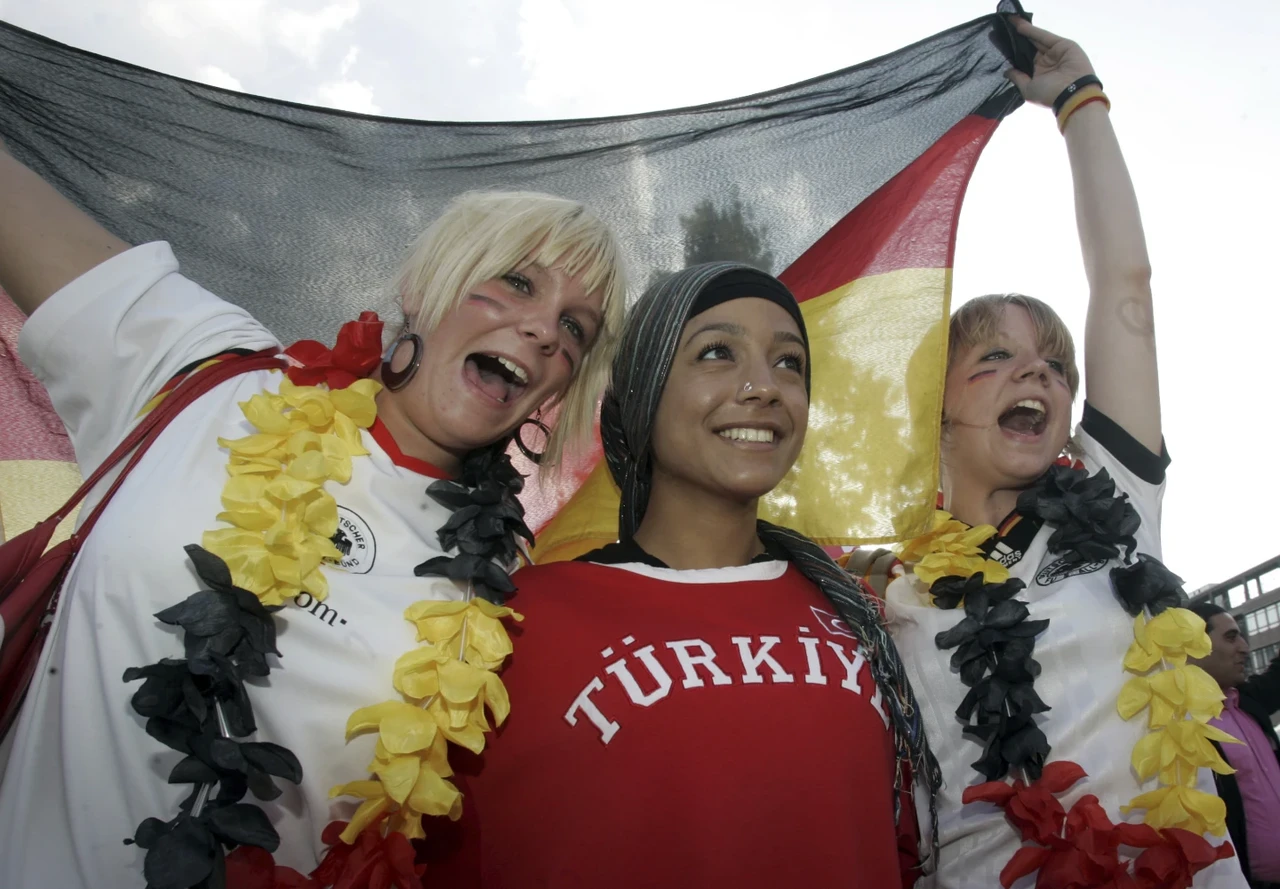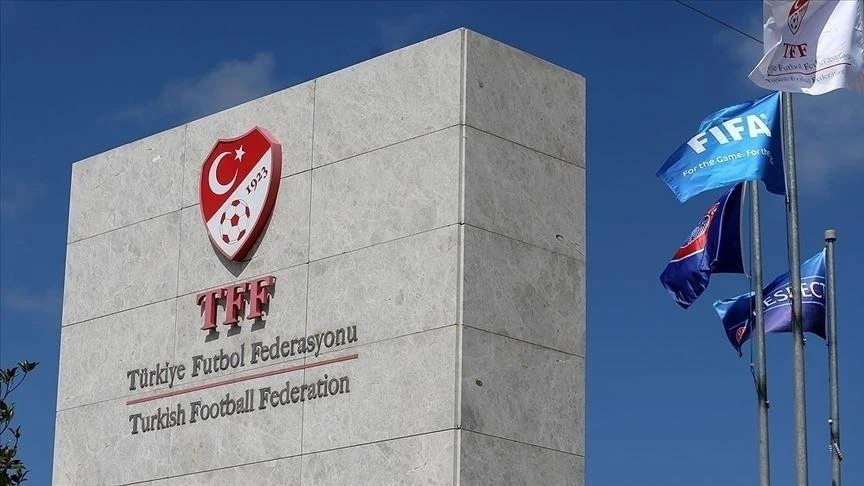Euro 2024: Turkish-German community rallies behind Türkiye and Germany
 German and Turkish fans celebrate at the KoelnArena-Dome prior to the soccer EURO 2008 semi-final match between Germany and Türkiye in Cologne, Germany June 25, 2008 (AP)
German and Turkish fans celebrate at the KoelnArena-Dome prior to the soccer EURO 2008 semi-final match between Germany and Türkiye in Cologne, Germany June 25, 2008 (AP)
Six years have passed since the Turkish German midfielder Ilkay Gundogan found himself under scrutiny for a photograph alongside Türkiye’s president, a moment that once cast doubts on his place within the German national team.
Fast forward to today, and Gundogan stands poised to lead the team as its captain in the European Championship opener against Scotland, marking a historic moment as the first captain of Turkish heritage to lead Germany in a major tournament.
To many within the vast Turkish-German community, Gundogan’s ascent represents a burgeoning “hybrid identity,” a concept gaining traction despite political headwinds from the far right, notes Caner Aver, a researcher at the Center for Turkish Studies and Integration Research in Essen, Germany.
While Gundogan faced the pivotal decision of which nation to represent on the field, fans found solace in supporting both teams. As the tournament draws near, Aver’s gesture of stitching together halves of German and Turkish national team shirts for his son symbolizes the growing acceptance of this duality.
I think there will be a lot of people who support both national teams and who would probably be pleased if they were to meet at some point in the semifinals or final
Caner Aver
Among those embracing both German and Turkish identities is Osman Eroglu, a goalkeeper and board member at Turkgucu Ratingen, a Turkish community soccer club near Dusseldorf, the host city of Euro 2024.
For us, for people with a migration background in the third or the fourth generation by now, it’s a European Championship in our own country too, after all. It’s double the joy because Türkiye is represented this year too, so there are two teams straight away that you can support and cross your fingers for.
Osman Eroglu
However, concerns linger regarding the treatment of players from minority backgrounds should the team falter. Some view opting to represent Germany over Türkiye as an act of betrayal. Gundogan, in particular, faced jeers from Turkish national team fans during a friendly match against Germany in Berlin last year, a game Türkiye clinched 3-2.
The scrutiny intensified when Gundogan and teammate Mesut Ozil, another standout player of Turkish heritage, posed with Türkiye’s president ahead of the 2018 World Cup, drawing criticism from then-president of the German soccer federation, Reinhard Grindel, who questioned Erdogan’s alignment with the federation’s values.
Following the World Cup, Ozil’s departure from the national team, citing racism and disrespect, underscored the challenges faced by players of diverse backgrounds in German soccer.
Meanwhile, the Turkish national team, bolstered by five Germany-born players, anticipates fervent support. Defender Ozan Kabak, born in Türkiye but playing club soccer in Germany, anticipates a strong showing from Turkish fans, particularly in cities with sizable Turkish communities.
Yet, injuries have already sidelined players like Kabak, dampening Türkiye’s prospects as they prepare to kick off their Euro 2024 campaign.
As the tournament approaches, the broader context of migration and identity resonates. Descendants of “guest workers” who arrived during the Cold War, along with subsequent waves of migrants from various nations, contribute to Germany’s rich tapestry.
Moreover, the abolition of longstanding restrictions on dual nationality marks a significant legal shift, reflecting the evolving nature of German identity. Aver’s vision of a half-and-half shirt embodies this sentiment, symbolizing unity amid diversity.
It’s important, now in a time of rising right-wing populism … to put diversity in the foreground. So I hope and I wish that the fans celebrate together, commiserate together, and experience joy together.
Caner Aver



